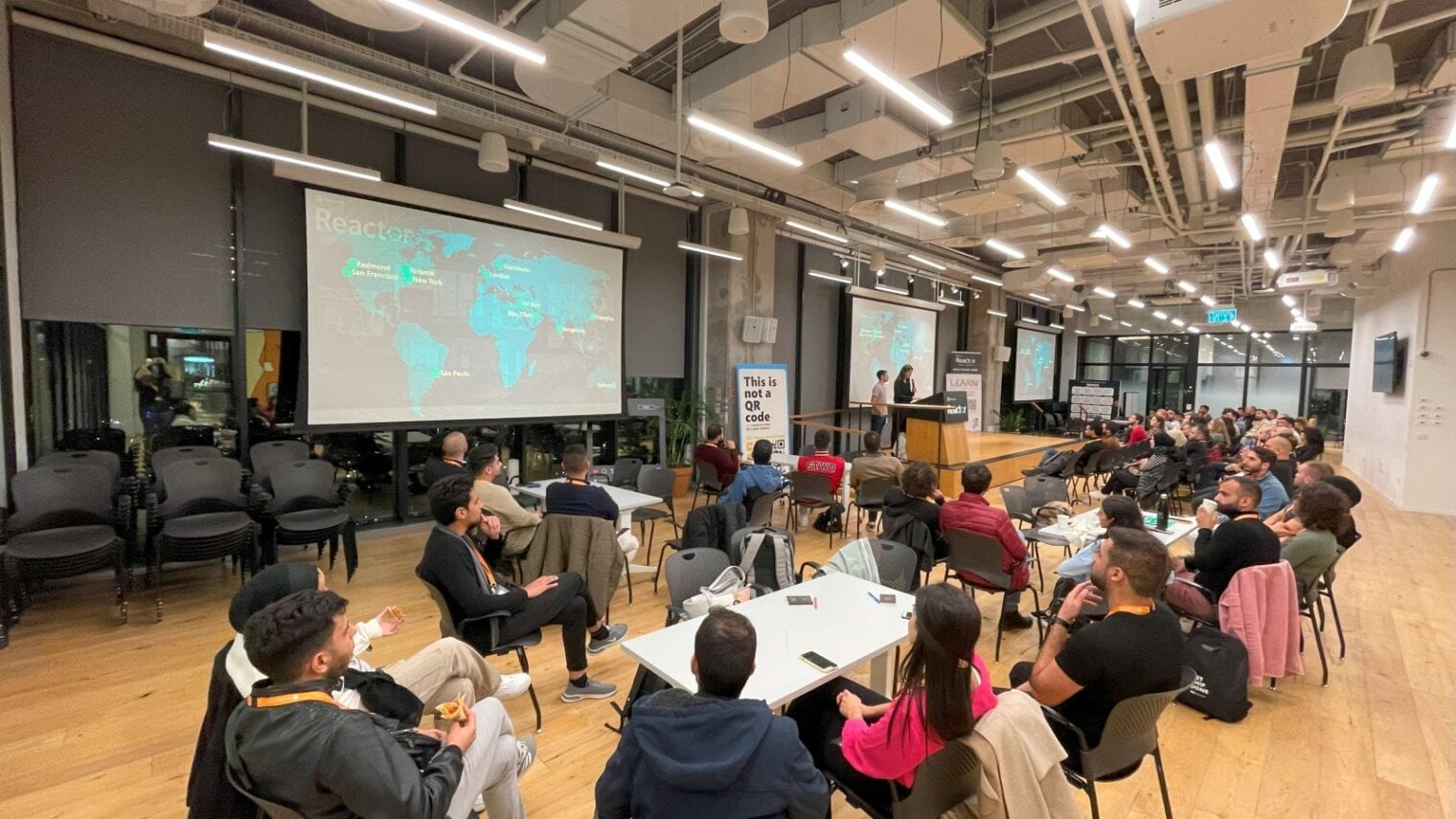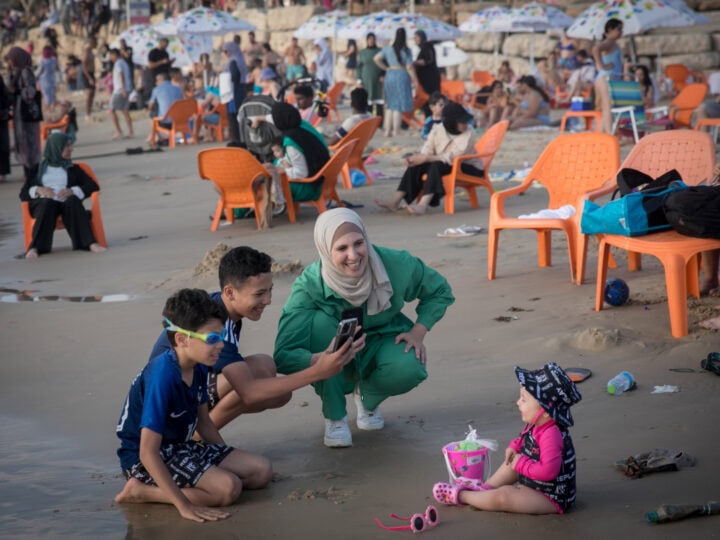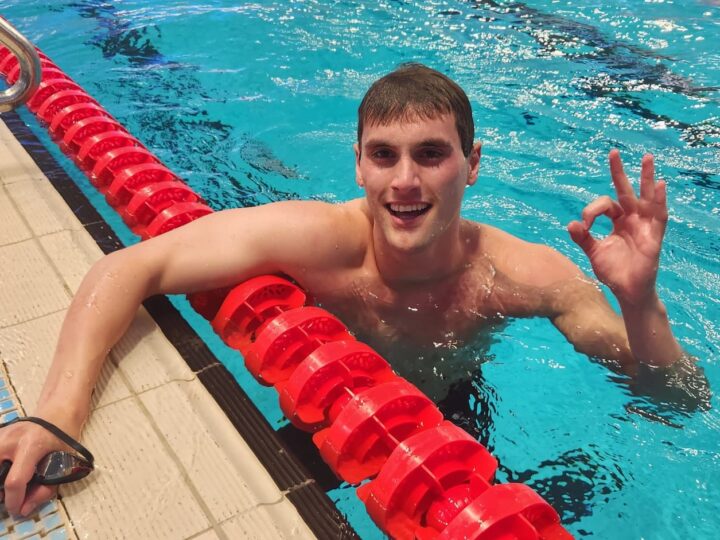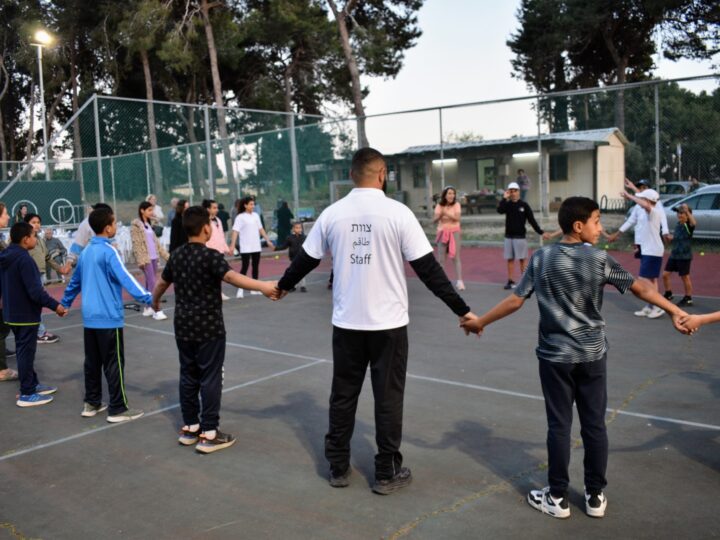“Over the last 17 years, I’ve been involved in an effort to establish a ‘Palestinian startup nation’ because I think it’s important for everyone in the region. I still think it’s important,” said Yadin Kaufmann.
“Now is a very difficult time to think about anything cooperative after the horrors of October 7. It’s been devastating for everybody and there’s no excusing it. But it doesn’t mean all Palestinians are our enemies, even as we fight Hamas,” he said in a conversation with ISRAEL21c on December 10.
Kaufmann is founder and chairman of the Palestinian Internship Program (PIP) and Sadara Ventures, the first venture capital firm for the Palestinian tech sector. He also founded Tmura – The Israeli Public Venture Fund, which lets early-stage companies participate in corporate philanthropy.
He started PIP in 2014 to help Arab information technology students from East Jerusalem and the Palestinian Authority territories find paid internships after finishing their degrees. While there are other programs for Israeli Arabs, PIP targets two populations in a different citizenship category.
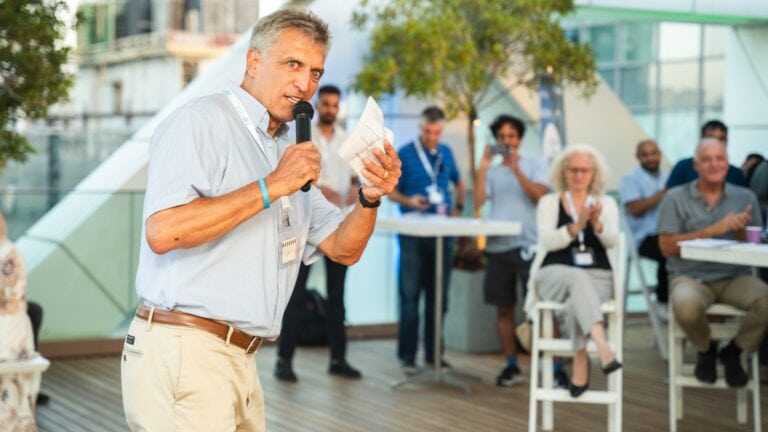
“The idea was, let’s give these talented and ambitious young people that first job opportunity, which they can then take back and use to help build the Palestinian economy,” Kaufmann explains.
PIP matches new graduates and young professionals with Israeli tech companies, as well as multinationals with a presence in Israel, such as Google, Intel and Microsoft. Workshops, meetups and networking events are held before, during and after the six-month internships.
Lifechanging opportunity
“So far, 103 alumni have done PIP internships, and they tell us that we provided a lifechanging opportunity to work in an Israeli company,” Kaufmann tells ISRAEL21c.
“After PIP, most of them get jobs, some go on to graduate studies, and for both it changes their attitude about working with Israelis. For most of them, it’s the first time they have had a relationship with Israelis, and vice versa.”
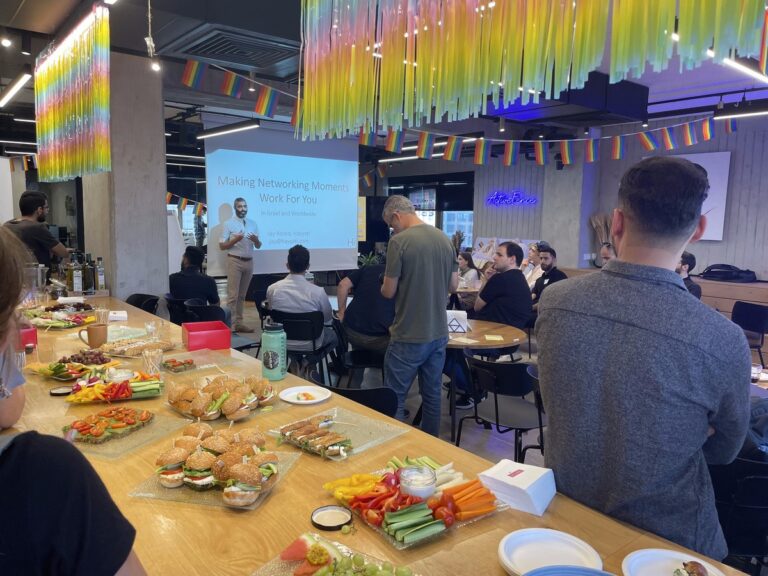
One past participant, Dalia Hajhamad, says that her PIP internship with the nonprofit organization Gulf Red Med took her to Dubai.
“The experience was very challenging, but it had a huge impact on my growth. The skills I learned in PIP’s workshops influence how I approach projects that I am working on now. I’ve found that when I’m required to learn new skills today, it is less difficult and intimidating because of the experience and abilities I gained during my internship,” says Hajhamad.
Kaufmann says that although PIP’s progress has been curtailed by the war, he is hopeful that recruitment and internships will go forward in the next cycle.
Pain and anguish
Several scheduled internships had to be put on hold in the aftermath of the October 7 Hamas attacks.
“That was a huge blow, and everyone is eagerly awaiting the chance to resume the process in the future,” says PIP Executive Director Anna Gol-Dekel.
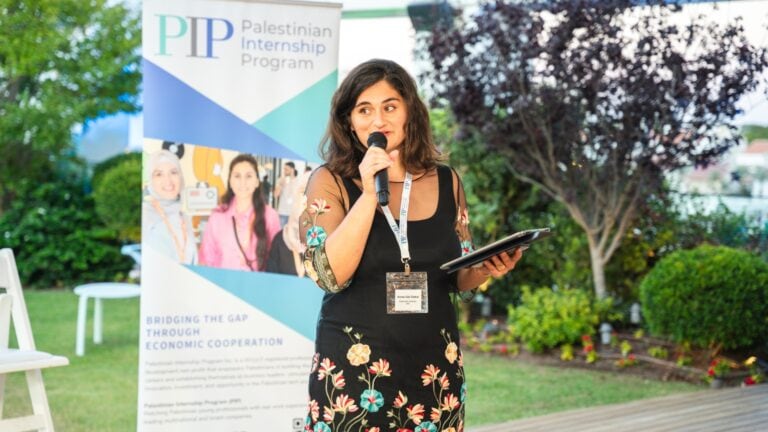
She explains that many companies can’t take on interns now because they have employees serving in the reserves, or have experienced the deaths of employees or their relatives. Furthermore, they cannot get entry permits for West Bank residents during the war.
“It is hard,” Gol-Dekel admits.
“There’s a lot of pain, anguish and anger. My staff and I are doing what we can to offer support. We are taking a step back from our outward-facing activities and focusing on check-ins and conversations with participants and alumni.”
Because aside from professional development, she says, “we are focused on community. To help our participants build that professional community, they need to know they have someone to talk to.”
Kaufmann adds that a few Palestinian participants “have told us they don’t want to be involved any longer, and others say they cannot be active right now in alumni programming. We respect that. We’re not forcing anybody to do anything. We hope they will come back in a few months.”
PIP is beginning to offer some programming for those willing to retain their involvement, including CV writing skills and other workshops.
“Improving people’s situation and getting people speaking and working together is better than the alternative,” he says.
Mentors and mentees
PIP also encompasses the Palestinian Mentorship Program (PMP), connecting Palestinian entrepreneurs and senior executives – including some from Gaza — with business and tech leaders from around the world for professional mentorship.
“Four of our Gaza mentees came to an event we had last August in Herzliya,” Kaumann notes. Obviously, connections at that level “will take a while to reestablish.” Meanwhile, PMP is in touch with all 15 mentees living in Gaza.
Some of the other PMP mentees are still meeting with their mentors, says Gol-Dekel, determined to work with their partners to move their businesses forward.
“Despite the challenges, high emotions, and suffering people are experiencing during the war, we’ve been receiving support from participants and volunteer mentors stressing the importance of the work we are doing. It’s uplifting to hear, because a lot of organizations are struggling now with cross-border work,” she says.
“Among our mentor pool, which is international — Arabs and non-Jews as well as Jews – it’s a mixed bag. Some mentors tell us they need to take a step back, some have experienced immediate loss and need to focus inward, and we’ve been supporting them too,” Gol-Dekel says.
“We are learning how to navigate the mentor-mentee relationships because in working together on mentee businesses, personal relationships are being developed. When there are heightened political issues, those personal conversations can get tense. We are seeing how can we help them navigate those challenging conversations and understand where each party is coming from.”
While there is no one-size-fits-all solution, she says, ” Economic cooperation focused on bettering our lives and working toward bridge-building is the only way forward.”
The vision is still alive
Gol-Dekel says that PIP’s donors – primarily US-AID’s Building Regional Economic Bridges Program, the Natan Fund and Charles & Lynn Schusterman Family Philanthropies – “everyone has been incredibly supportive.”
However, she adds, “We are actively seeking new funding for the last half of 2024 and beyond, and the biggest challenge is that a lot of people in the donor community are unsure of how to continue from here.”
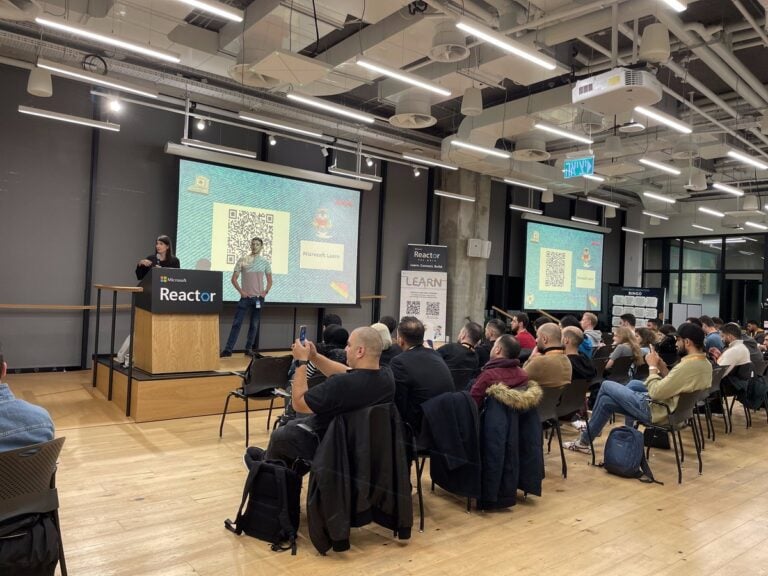
Despite these challenges, she continues, “the work we are doing at PIP and PMP rises above the pain and suffering. There’s still a desire among Palestinians and Israelis to work together. Palestinian entrepreneurs and professionals still want to build their ventures and be successful and support their families. As long as that vision is alive, our work is still alive.”
Kaufmann concludes, “The bottom line is that the basic assumptions behind PIP that were true on October 6 are still true: The very big economic gaps between Palestinians and Israelis are negative for everyone in the region. There are talented Palestinians who can help reduce those gaps in the tech startup economy, which is building up in the West Bank. All of us will be better off if they can be in the tech world.
“If we can get Israelis and Palestinians to work together, we can break down stereotypes and build relationships.”
For more information, click here.




